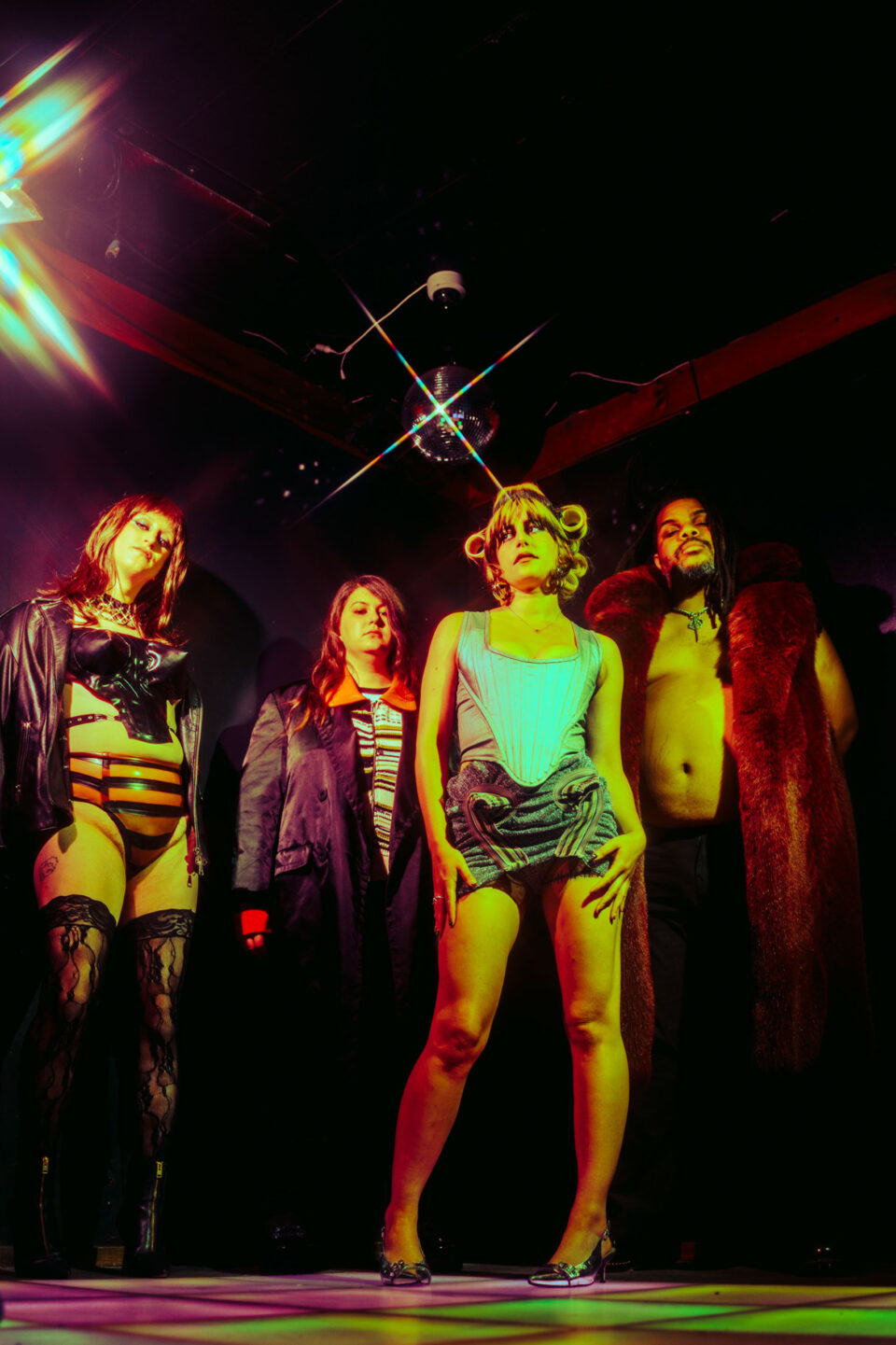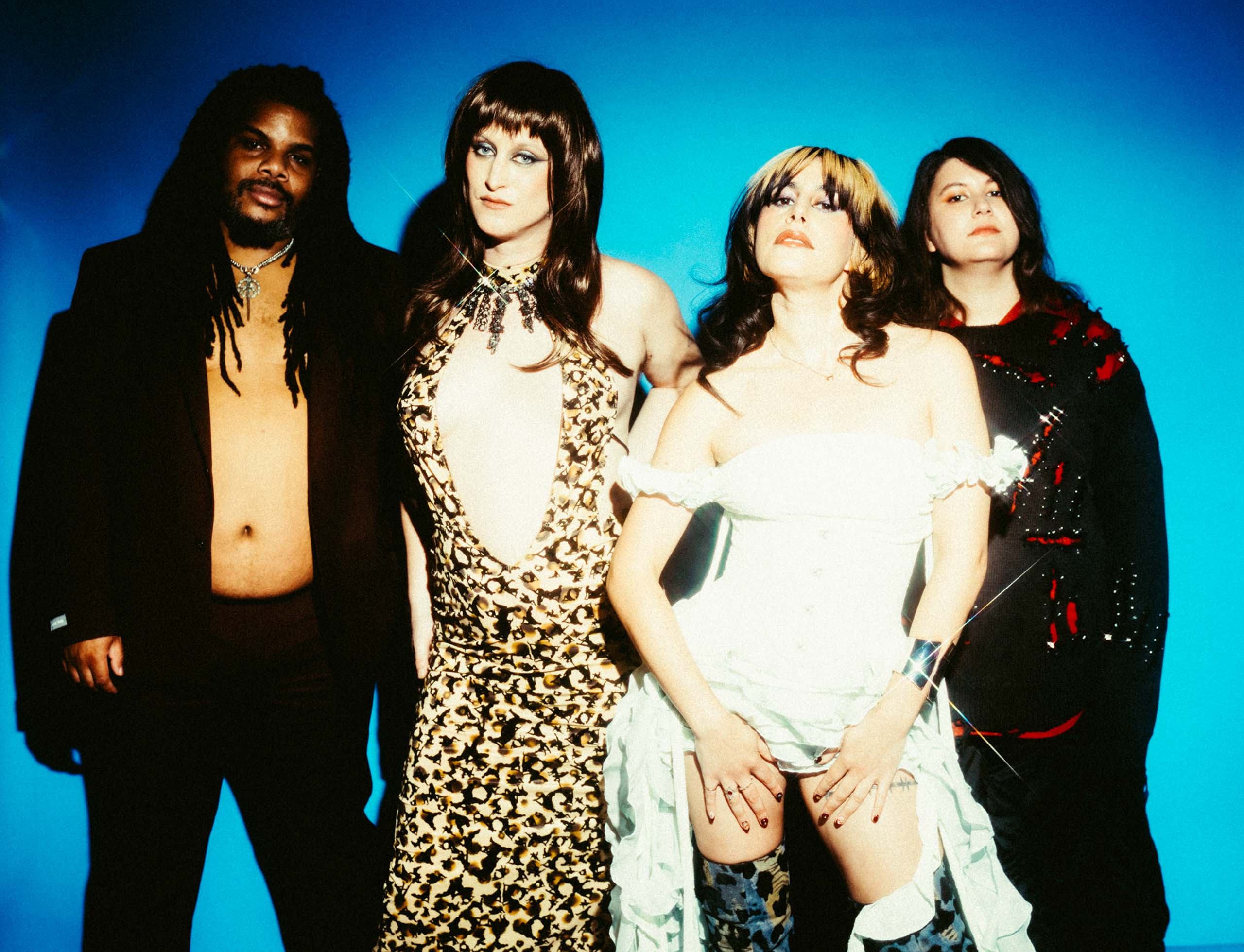It’s an hour before Mannequin Pussy hit the stage, and each of the band’s four members—guitarist/lead vocalist Marisa “Missy” Dabice, guitarist Maxine Steen, bassist Colins “Bear” Regisford, and drummer Kaleen Reading—are trying to get into their respective zones. Somewhere backstage you could find Bear waking up from his pre-show nap, chugging some water, getting his mind right with the help of some Durban Poison and, as he puts it, “praying for the best.” You might find Steen, the professed “Manchurian Candidate” of Mannequin Pussy, activating herself with the help of a steady stream of sugar-free Red Bulls. Reading and Dabice, meanwhile, sequester themselves away with some meditation, exercise, and a good stretch. This isn’t the scene of a single night, but a blurry amalgamation of the nearly 100 evenings Mannequin Pussy has spent on the road this year.
Such is the state of the Philadelphia quartet in 2024, a year that saw them release their best record to date and take over the world one gig at a time. It started back in 2023, when the band met with famed indie producer John Congleton in his Los Angeles studio to record their fourth record, I Got Heaven, an album that would come out in March to near universally rapturous reviews. We ranked I Got Heaven as one of the best of 2024’s first six months, and (spoiler) it’s not likely to be dethroned as we move into end-of-the-year list season. Now, eight months later, after a handful of lengthy tours across the US and Europe and spots on massive festival stages at Glastonbury, Primavera, and beyond, Mannequin Pussy are finally catching their breath, ready to take stock of the biggest year in the life of one of the most exciting bands on the planet.
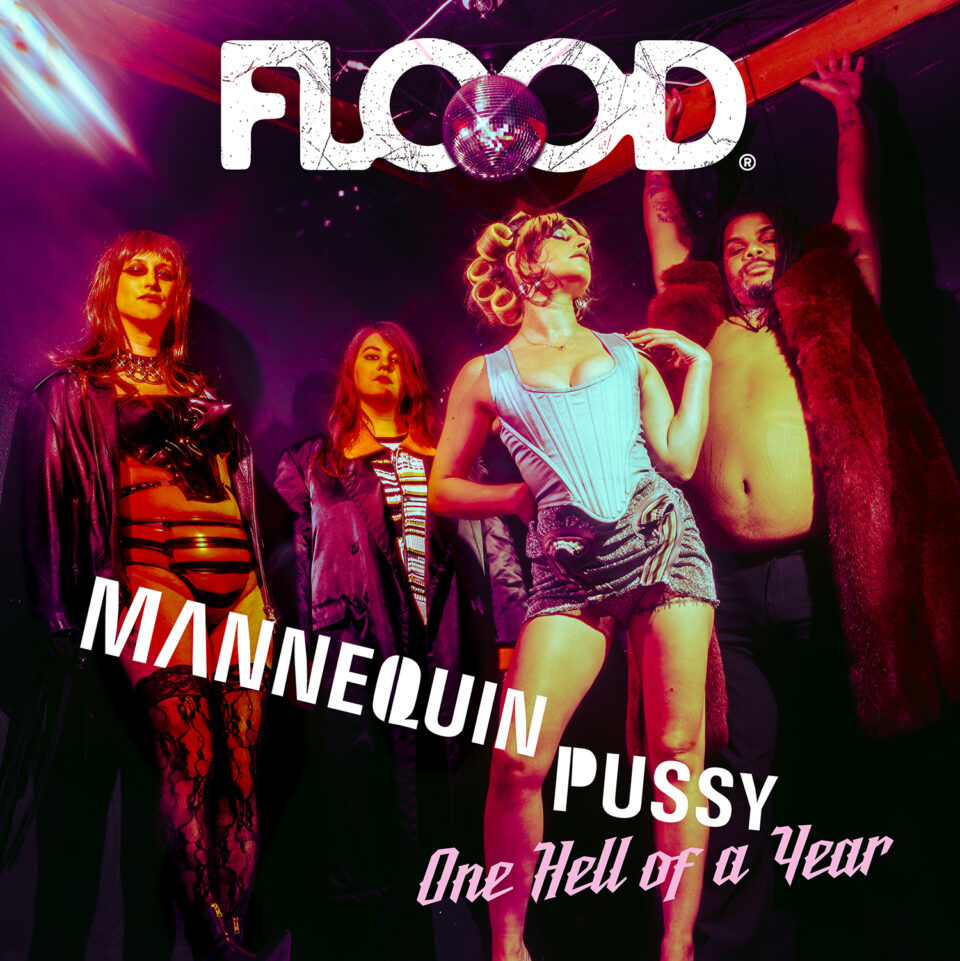
When I meet with Missy for coffee in South Philly on an unseasonably warm November day, the band has been home for almost a week—which feels like an eternity to Mannequin Pussy. These are precious moments in 2024, which has offered little in the way of stillness. When I ask her about coming down from such a whirlwind year and whether, in a way, being home can begin to feel as foreign as life on the road, she immediately squashes the notion. “I’m fine with the sound of no one clapping, I’m very cool with silence,” Dabice says. Still, there’s something to be said about spending nearly one out of every three nights of the year on stage, and what that does to both the band and the individuals involved, something Dabice and the rest of the band seem keenly aware of. “I think this is the most shows we've done in a concentrated amount of time—like, it was just back to back to back,” Regisford says.
I come to learn that this is the double-edged sword that’s sliced its way through Mannequin Pussy’s barn-burner of a year. On the one hand, the band has never seemed so poised to take over the entire world. Always an explosive live act, Dabice and company are firing on all cylinders like never before. Just a quick look at some of their sets from 2024 offers proof of a band who, indeed, spent a year perfecting what it is they do best. Dabice talks a lot about her background in dance and how much she considers the ways in which movement and the body can work in tandem. The same goes for presentation, and how her own personal style—a constantly shifting, brash, and confident display of self—manifests on stage. “This past year has been about ultra femininity and big gowns,” Dabice says.
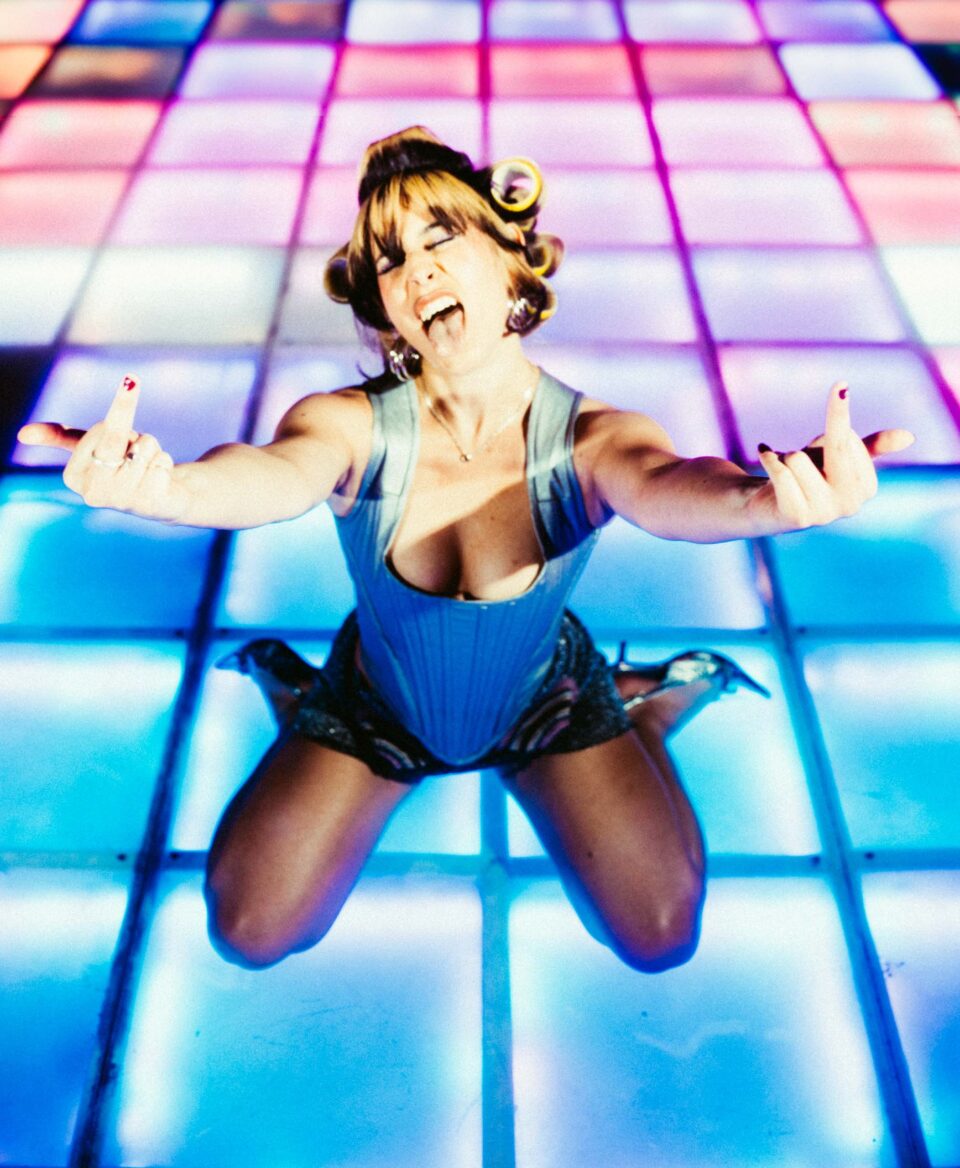
“Gen Z is so much more in touch with their rage. I really feel when I’m looking out into the crowd that these are younger versions of us.” — Marisa Dabice
This tour even saw the band embrace stage lighting like never before, a result of their shows being upgraded from clubs and bars to theaters due to massive demand. “We’re playing in spaces that are meant for a thousand or more people,” she says. “You have to fill it, you can’t just use house lights and have it feel like a curated experience.” All of this, of course, is in service of what Dabice looks at as the “emotional journey” of a live show, a journey she describes as playing out in three distinct acts: the pop-oriented, romantic opening section, the double-gut punch of the middle, and the full-throttle finale.
Mannequin Pussy may have begun as aggressive upstarts playing in basements and bars across Philly, but they’ve evolved into one of the more reliably fantastic punk acts working today, as evidenced by their growing popularity as a festival mainstay. When I ask how these big stages, chaotic environments and, perhaps, mildly indifferent fans contrast with your typical headliner show, Dabice acknowledges the challenges. “Suddenly you’re taken out of the bubble and the well-oiled machine we built as a crew. You have to release any sense of control, because technical difficulties are guaranteed. And you might be playing in the fucking pouring rain, or you might be playing directly in the sun in 95 degrees. You just have to roll with it.”
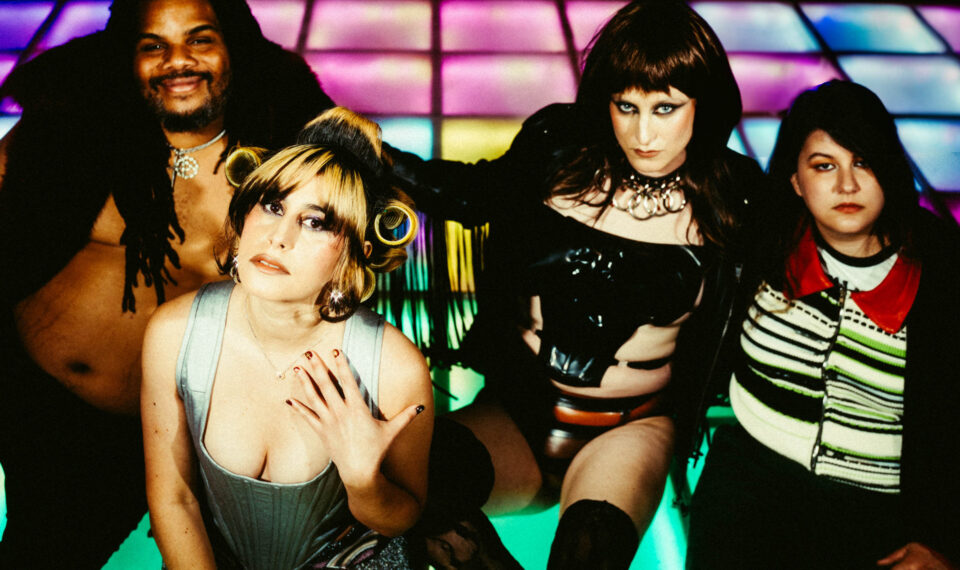
Of course, there’s also the chance everything does go according to plan, and the throngs of sweaty, dirt-caked festival-goers get a chance to see a band they might not have been all that familiar with rip through a set destined to win plenty of converts. “It can be really stressful and intense, but it can also lead to fully magical moments,” Steen says. “It’s such a great energy when a festival set goes well. Somehow it usually works out, and that kind of euphoric feeling of, ‘How the hell did that just happen?’ sets in,” adds Reading.
It was early summer when Mannequin Pussy was kicking ass on stage—and gaining legions of followers in the process—when they slowly began to realize how unsustainable the whole thing had become. “I think in June is when I had a nervous breakdown on tour,” Dabice says matter-of-factly. “I didn’t want to sing or scream or even talk to anyone for like a week.” The announcement came toward the end of July, halfway through their European tour, a move supported by the whole band, who’d collectively felt the crushing weight of extensive touring pressing down on them. “I think it was the smartest thing we ever did,” Steen says, who admits how easy and alluring it can be to completely ignore your mental health in favor of success and momentum. “There’s been times in my life where I probably should’ve taken care of myself and didn’t, and I went on tour and it blew up in my face.”
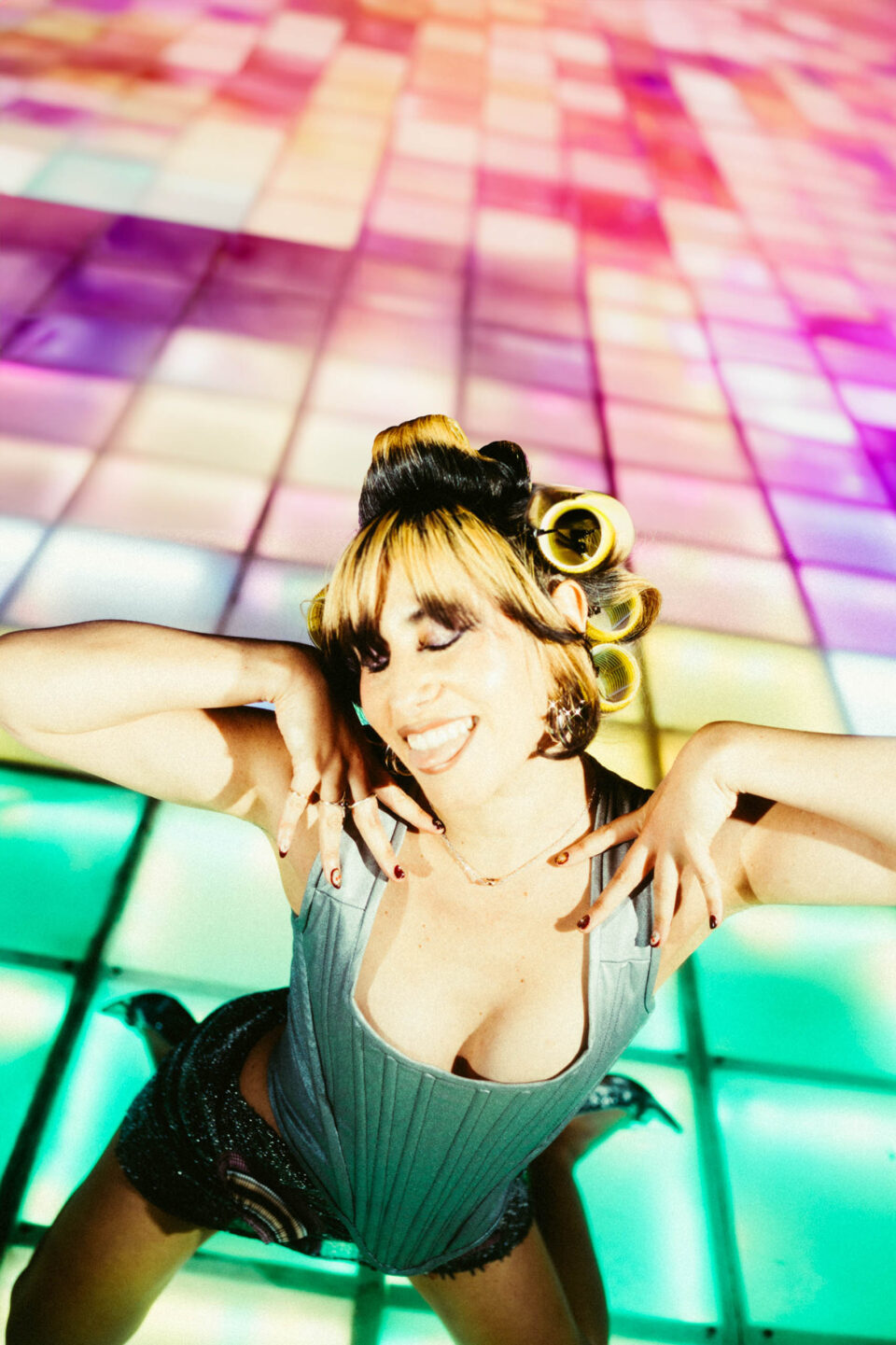
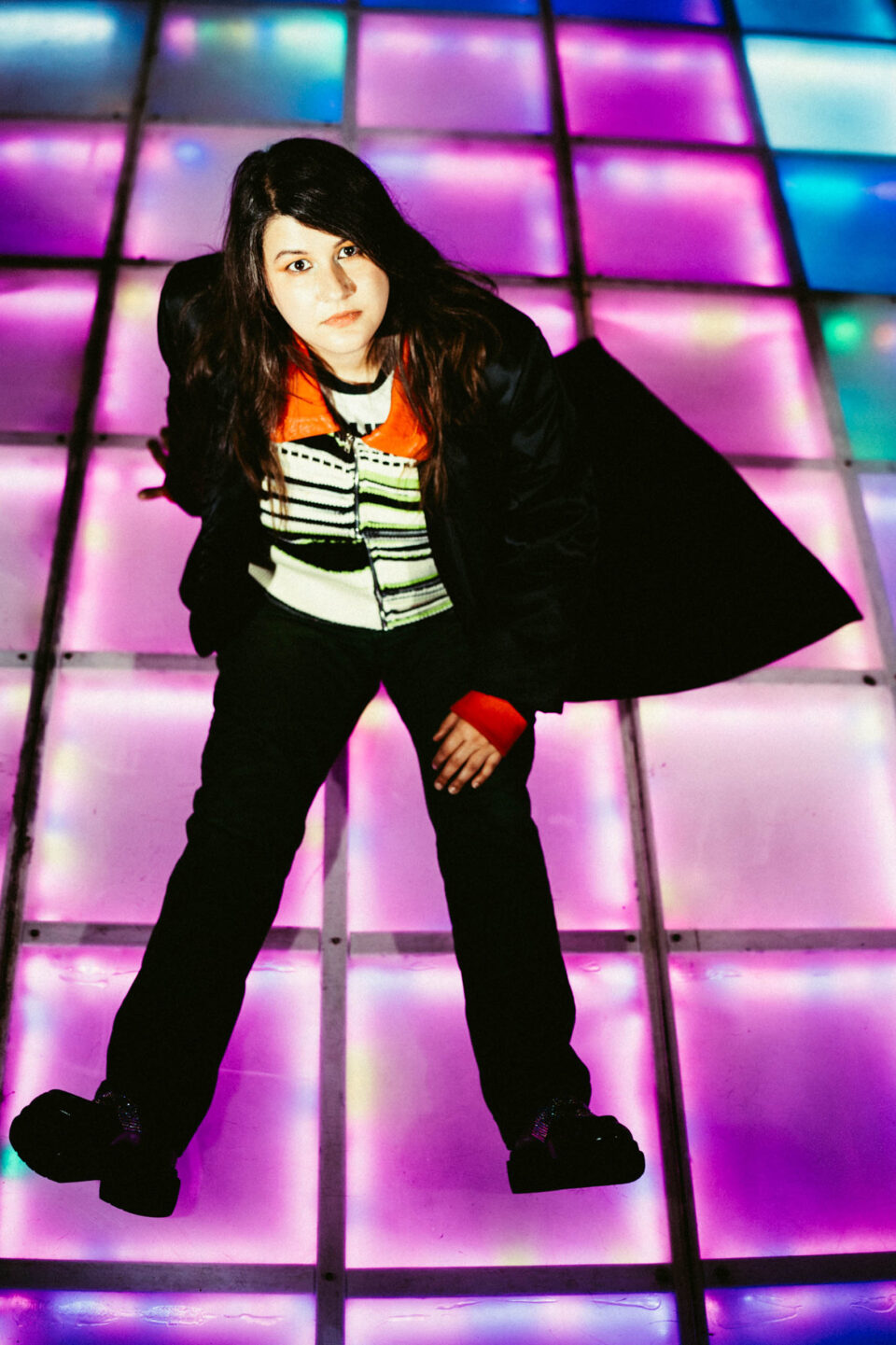
“It’s such a great energy when a festival set goes well. Somehow it usually works out, and that kind of euphoric feeling of, ‘How the hell did that just happen?’ sets in.” — Kaleen Reading
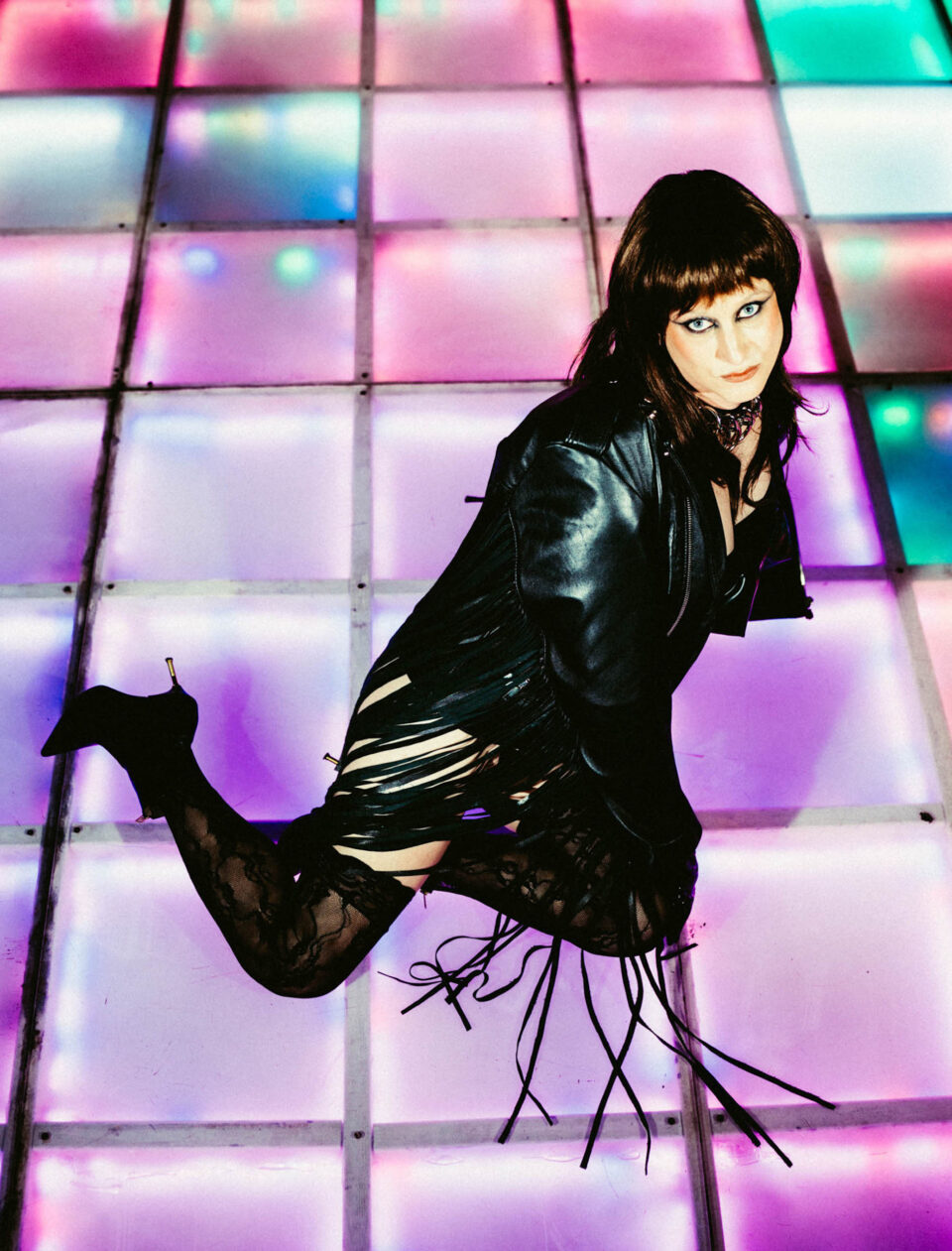
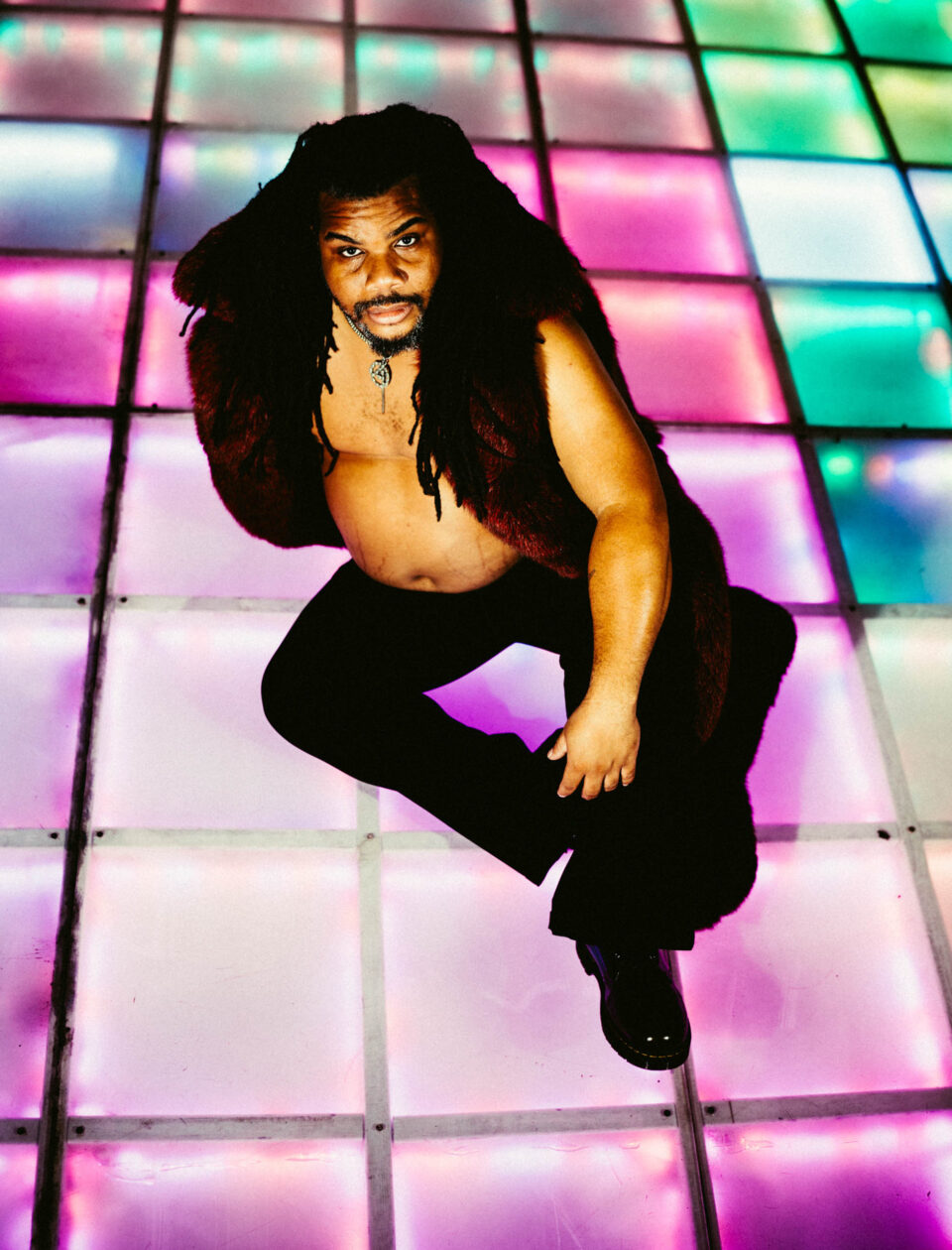
This pressure is self-inflicted, sure, but as we’ve learned more and more over the course of the last few years, an industry that prioritizes non-stop touring is happy to ignore the effects of such a life. Musicians work so hard to get to a point where they’re so in-demand that recognizing when to say no is largely an afterthought. Sure, things are going well now, the thinking goes, and canceling a tour is not the end of the world—especially in a year where another run lingered right around the corner—but you never know when all that opportunity might dry up, when things won’t look so rosy. Are you sure you can stomach losing out on this opportunity? “It’s a total bullshit attitude, but that’s what you’re ingrained with in choosing the life of an artist—that any opportunity, any gig, you shouldn’t turn down. And that’s just not true,” Reading says.
Even without the remainder of that European tour, Dabice had friends and fellow musicians checking in with her, knowing just how grueling a schedule the band had set for themselves. For her part, Dabice recognized the need to take both her physical and mental health more seriously as the year progressed, regularly seeing an otolaryngologist (or ENT), meditating consistently, and meeting with an energy healer. With just a few shows remaining in 2024, Dabice is determined to leave her schedule as empty as possible. As of now, Mannequin Pussy has most of the first three months of 2025 off, trying their best to get back to a place where home feels less like a waystation and more like a place where they can let out a collective deep breath. “Years ago, when I was working all these different jobs, I was praying for the day I would be busy,” Dabice says. “And now it’s here, and I’m doing the best I can.”
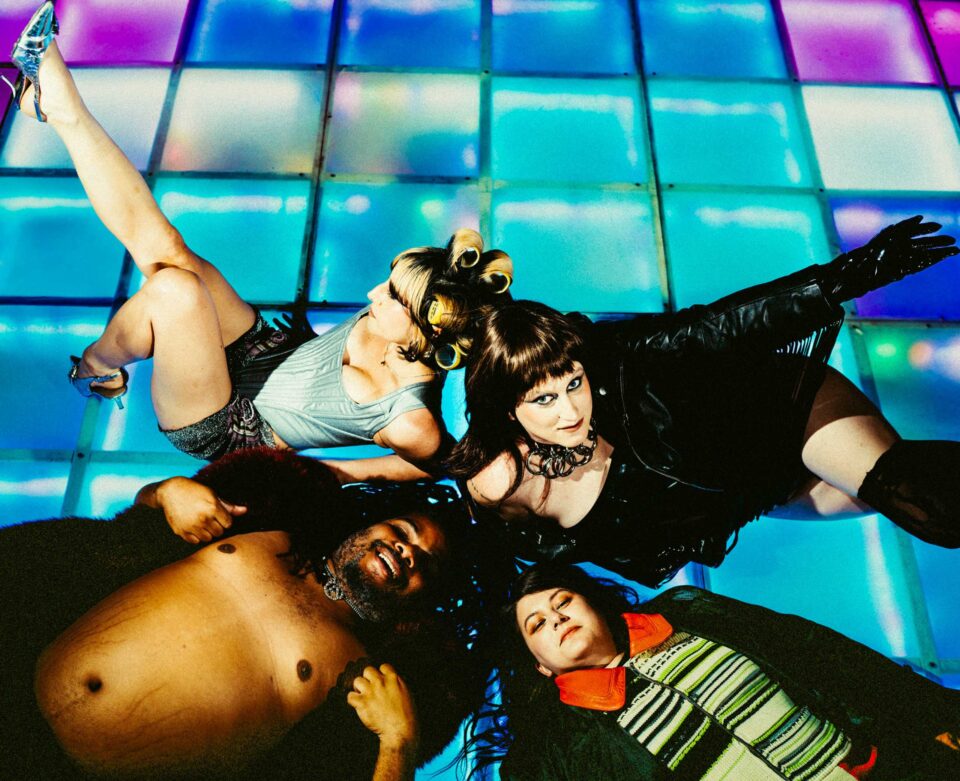
Styling Assist: Fet Hilario Photo Assist: Shannon Sophy Location: Foto Club Clothing Credits: Look one (above) Missy: House W NYC (corset), Jean Paul Gaultier (jacket), Taottao (skirt), Flying Solo (earrings) Maxine: Tableaux Vivants (latex top and bottom), Confessional Showroom (jacket) Bear: Landeros New York (faux fur vest), Levi's (pants), Dr. Martens (shoes) Kaleen: Pence 1979 via Showroomseven (coat, sweater), Francesca Bellavita (shoes) Look two (below) Missy: LSOUL (dress), Samantha Mychelle (shoes), Maxine: Poster Girl (dress), Showroomseven (jewelry) Bear: Michael Kors (suit) Kaleen: R13 (sweater, shoes), Noir Kei Ninomiya (pants)
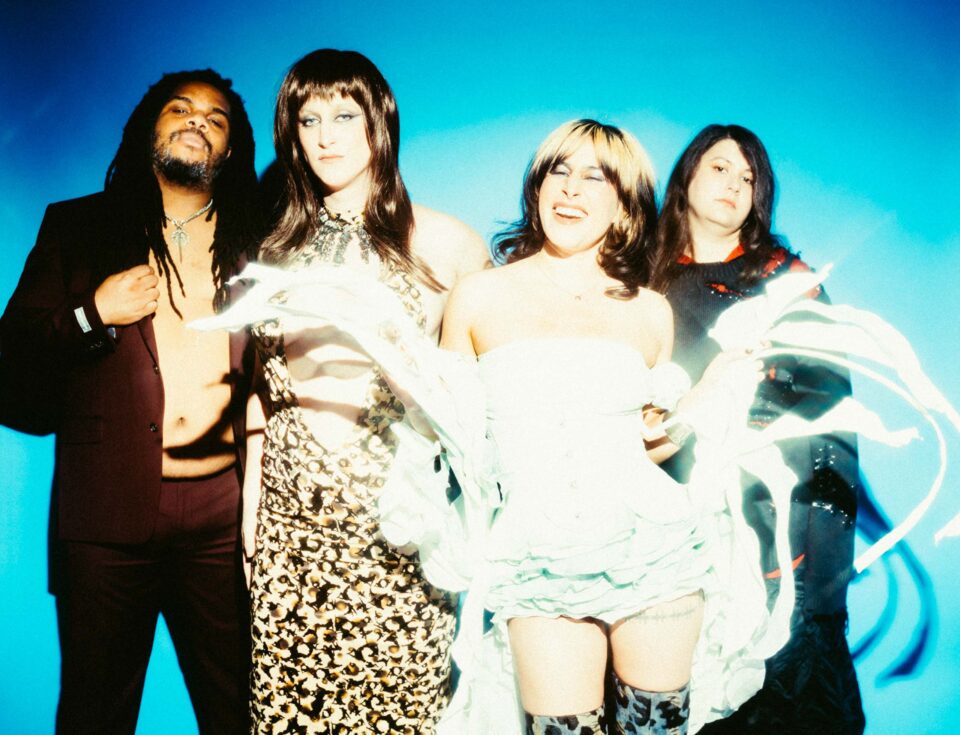
I get the sense that this hiatus—however well-intentioned, wise, and necessary—will not last very long. Over the course of our conversation, Dabice seems ready to bubble over with ideas and plans for the future of not only Mannequin Pussy, but her own, separate creative endeavors, including screenwriting and directing. The bursting, eclectic, passionate force that is Missy Dabice is largely a reflection of what Mannequin Pussy has become over the last few years. People might think they know what a Mannequin Pussy song sounds like (“a three-chord, aggressive attack,” as Missy puts it) but that’s very much past-tense. I Got Heaven has that, sure, but it also has songs like “I Don’t Know You” or “Nothing Like,” both of which embrace a melodic sweetness and an emotional vulnerability that plays wonderfully when placed next to the sonic middle finger of something like “OK? OK! OK? OK!”
“It’s so fucking boring to be a genre purist,” says Dabice, who isn’t afraid to take potshots at a genre like pop-punk, which she feels is obsessed with making the same song over and over in hopes that the fifth attempt might finally hit. Dabice is aware that Mannequin Pussy could make a half-dozen versions of “Drunk II” or “Romantic” with little effort or resistance, a notion that sounds like its own form of personal hell to all involved. “Put a fuckin’ quarter in my ass and I’ll play whatever you want me to,” she says with a sly grin. When I ask her whether she worries at all about expectation, and whether that affects her process, she answers quickly and definitively: “Not at all.” For her part, she considers the band lucky to have the kind of fanbase willing to follow them wherever they may go, which may coincide with the generational shift she’s seen in recent years. “Gen Z is so much more in touch with their rage,” she says, explaining how she noticed Mannequin Pussy’s audience get younger and younger, especially post-pandemic. “I really feel when I’m looking out into the crowd that these are younger versions of us.”
“What I learned this year is when you feel like you’re performing—even when you’re not on stage—that’s when you start to lose your mind.” — Marisa Dabice
This influx of younger listeners, their placement on the premier festival posters, and their growing propensity to sell out concert halls are all evidence of a popularity growing exponentially, a fact that can’t help but add even more pressure to the touring life. “I remember one day on the last tour, we were walking out the door to get to our bus and there was just a line of people waiting next to the bus,” Regisford says. “There becomes that moment where it's like, ‘Damn, I just want to put my bag down, I just want to breathe for a moment and then I’ll come back out and I’ll hug you, and we can take pictures.’”
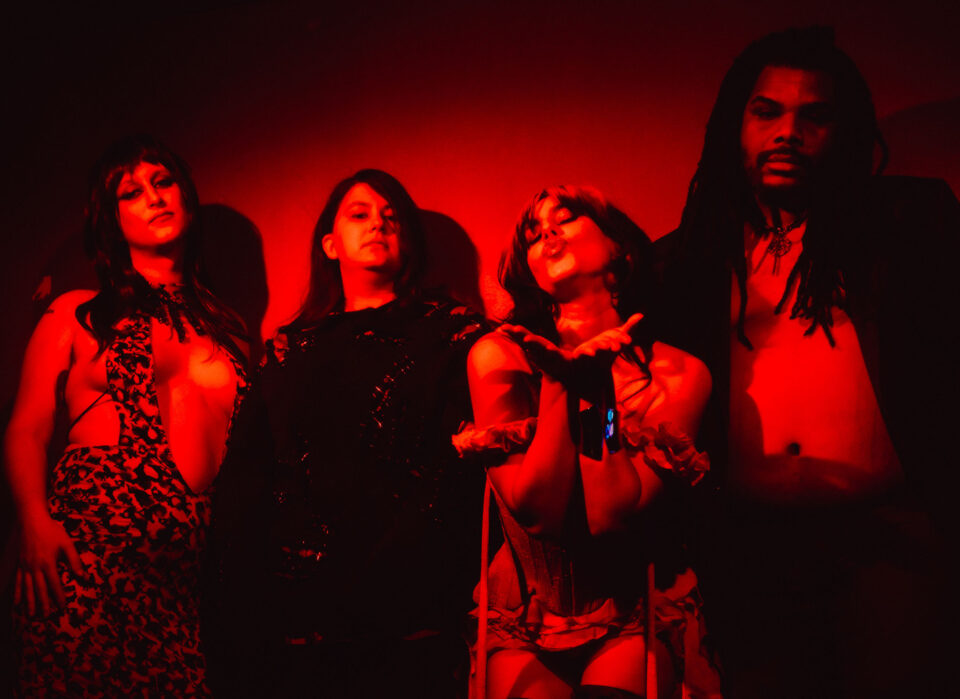
It’s important to remember how abnormal this sort of life is, even if it represents a level of success so many only dream of. “I used to really want to spend that time with people, because I was still in disbelief that anyone would be there wanting to see us,” Dabice says. “Then you realize that you need to actually hide yourself away and sequester a little bit, because if you have, like, 25 of those interactions in a row you start to feel a little bit more like a product than a person. You have to be a really enthusiastic, warm version of yourself. What I learned this year is when you feel like you’re performing—even when you’re not on stage—that’s when you start to lose your mind.” Even as she says this, I’m not sure how much that performance might extend to this very interview. We’re chatting at a coffee shop on a Saturday afternoon, something you might do with a friend you haven’t seen in a while. But of course that’s not the nature of our relationship which, at its heart, is just another part of a job that rarely allows you to truly clock out.
It’s just as we’re getting going that we hear the opening notes of “Drunk II” escape from the coffee shop’s speaker. A few moments later, one of the baristas—a young woman who likely fits into the Gen Z audience Dabice sees growing by the day—politely asks Dabice to sign an unused coffee cup, espousing her fandom in a way that’s familiar and genuine. “Does this happen all the time?” I ask. “More and more,” she says with something between acceptance and pride, more self-assured than embarrassed.
Such is the new normal for Mannequin Pussy, a band whose incredible, breakneck year has changed their lives, for better or worse. FL
